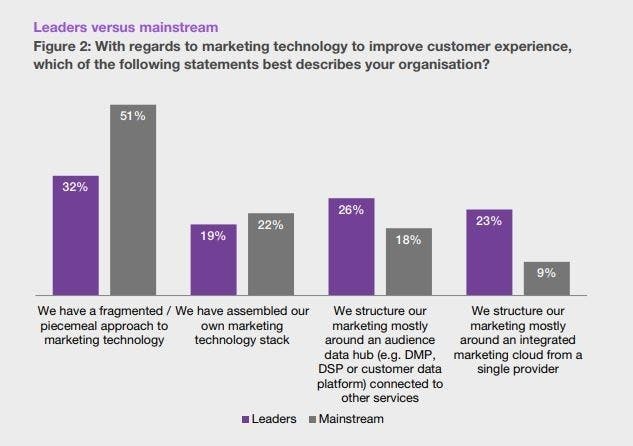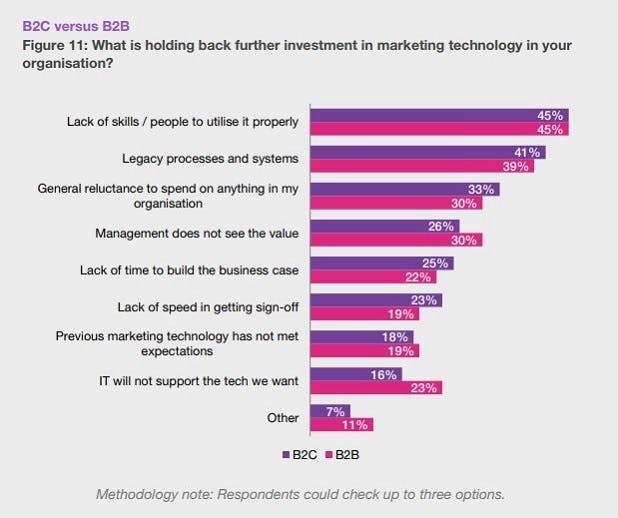This is highlighted in Econsultancy’s latest Marketing in the Dark report, in association with IBM Watson Marketing, which also delves into how companies are generally using martech as well as harnessing its power. Research comes from a survey of 1,026 senior marketing professionals in the summer of 2017.
Subscribers can download the report in full, but in the meantime, here are a few key takeaways.
Dark martech on the rise
Back in 2011, Gartner predicted that the CIO would be spending more on marketing technology than the CMO in 2017. At this point, there were only around 150 martech solutions available.
Now of course, this has dramatically increased, leading to a surge in the amount of homegrown solutions that organisations have developed in order to knit together different point solutions, or to perform specific functions.
The two biggest challenges faced by organisations using dark martech are the efficacy of the platforms and the ability to integrate them with other systems.
If marketers are not careful, they risk creating a chaotic and confusing set-up – which is then worsened by the fact that this software largely goes unnoticed by those who are not directly involved in its development and maintenance.
‘Leaders’ more likely to use single-provider solutions
Alongside integration, it appears that fragmented solutions can also result in less value.
Companies identified as ‘leaders’– i.e. organisations where marketing teams outperformed against their top business goal over the last year – are two and a half times more likely than ‘mainstream’ companies to structure their marketing around an integrated marketing cloud from a single provider.

Similarly, companies with a single-vendor solution are five times more likely than those who have assembled their own marketing stacks to say their ability to get full value from the technology is ‘excellent’.
Companies with a single-provider approach are also able to enjoy strong visibility on technology, with 88% saying that this is the case compared to only 57% of those who have a fragmented approach to martech.
Skills gap holding back martech
When it comes to getting full value out of martech, it appears that even the best platforms can fall flat without with the skills to effectively harness the technology and to customise it where needed. This is also a problem when it comes to investment, with a lack of skills cited as a main reason for a reluctance to invest by 45% of both B2B and B2C companies.
Creativity and confidence of staff is also hampered by the skills gap, as 66% of responding companies believe they don’t have the skills or talent to make most use of marketing technology.
Essentially, technology is only as good as the people who can configure it and utilise it effectively. It is therefore up to organisations to employ and train people with the creative skills to do so.

Don’t forget to download Econsultancy’s Marketing in the Dark: Martech report, in association with IBM, in full.

Comments